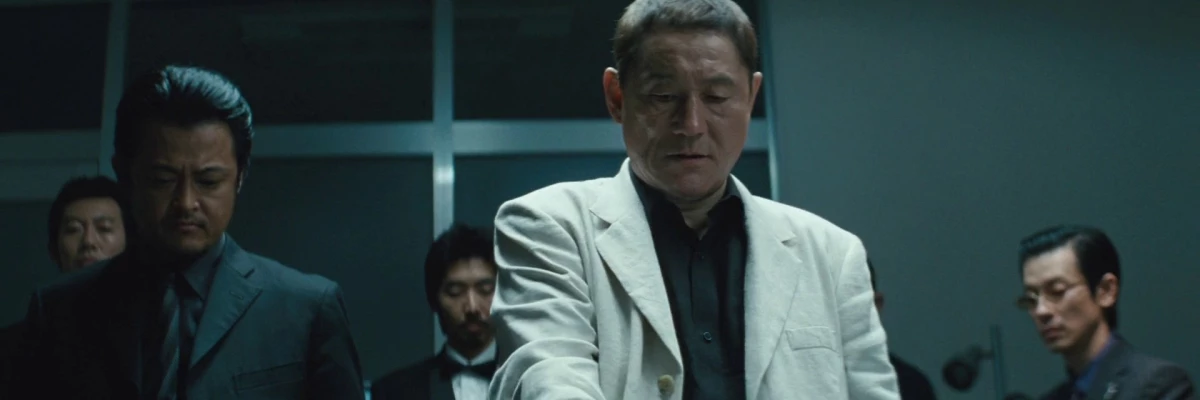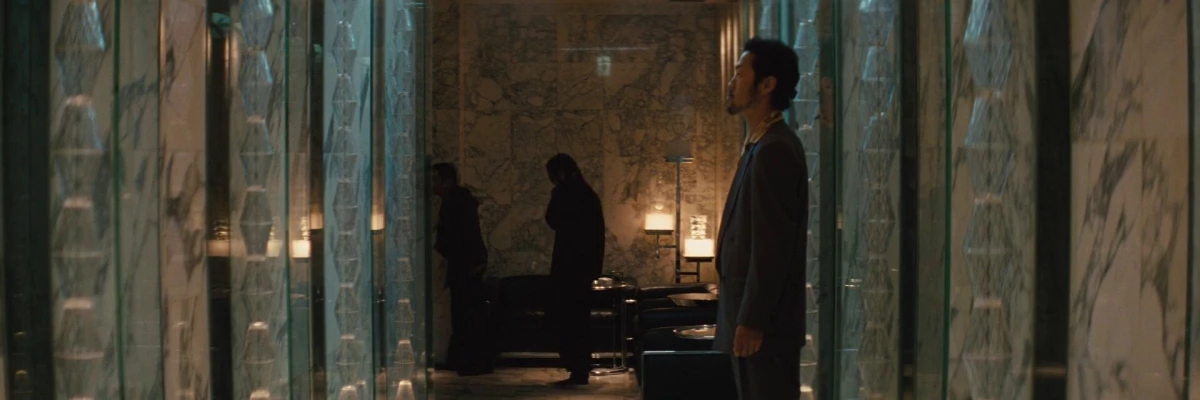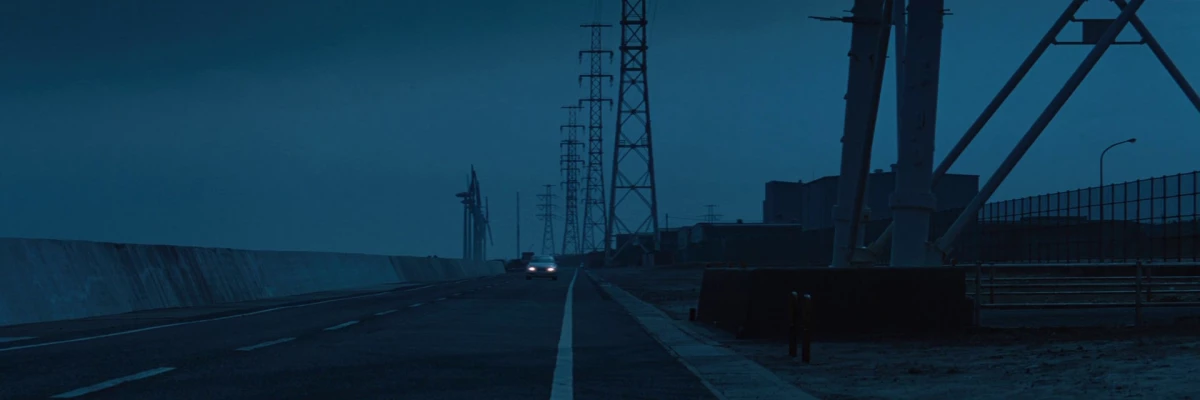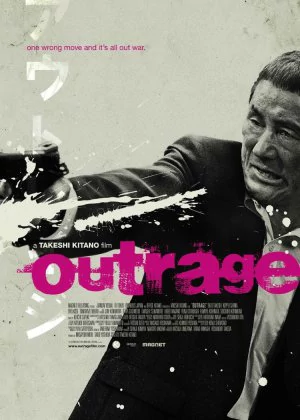Outrage
I've waited a long time before finally catching up with Takeshi Kitano's Outrage [Autoreiji]. These days Kitano's films take a while to reach the West and right when I was all psyched up to sit down and watch this film the man himself announced a sequel. So I decided to wait a little longer until I could see both films in quick succession. That time is finally upon us and now I can finally plug one of the more glaring gaps in my film collection.

People are eager to state Outrage takes Kitano back to his roots. In a sense that is true, ever since taking home the Golden Lion in Venice (for Fireworks) and traveling to America to direct Brother, Kitano has been shying away from Yakuza territory (think Dolls or Takeshis), but that's only half the story. Indeed Kitano returns to his beloved Yakuza setting after a 12-year hiatus, but Outrage is notably different from his earlier work and people expecting to see a vintage Kitano will no doubt be somewhat disappointed.
Outrage felt more like a cross between Paolo Sorrentino's Le Conseguenze dell'Amore (stylistically) and Takashi Miike's Agitotor (the setup). In Outrage, Kitano almost entirely ditches his typical sense of humor (though the film is not without a few chuckles) and forgoes characters instead of focusing on the bigger picture. Outrage is a Yakuza epic that follows the different shifts in power within a single Yakuza group. Several factions battle for power, all controlled and puppeteered by a single chairman.
The result is a rather cold and detached story about power and deceit, without a real main character to guide the audience into the core of the film. There are several primary henchmen who get some extra screen time, but in the end, this film isn't about any of them in particular, instead, it's about the shifting shape of the group as a whole. It's a different kind of Yakuza flick and it's the first time that Kitano is trying his hand at it.

Visually Outrage is a serious upgrade of Kitano's older Yakuza films. His trademark style of harsh cuts and strong framing is still there, but the camera moves around more often and the coloring is a lot tighter and better in balance. Auoreiji isn't as murky as his older films, though it carries a colder signature due to the many dark blue tones used. The colder coloring is balanced off rather well by a strong selection of beautiful tracking shots (the intro is especially stylish). As a whole, I felt the film carries a stronger visual signature.
While Joe Hisaishi's stamp on the score is dearly missed, Kitano made a smart decision by not trying to find someone to mimic his style. The score of Outrage is less outspoken but does blend in very well with the images. Kitano opts for a more modern, slightly electronic soundtrack that gives this film a unique edge while not pushing it in a definite direction. It's a pretty solid score, though you might not realize it until you take the time to really listen to it.
Outrage is somewhat lacking in Kitano regulars. No Ren Osugi or Susumu Terajima to fill in the blanks this time around, then again I didn't really notice any roles that would fit their characters. Fans of Japanese films will find a fair selection of familiar faces here though, with names like Ryo Kase, Jun Kunimura, and Renji Ishibashi strengthening the cast. Kitano himself has a sizable role too. He is once again his own self, stoic and sporting his trademark smile, but that's ultimately what is expected of him.

Though while watching Outrage you may feel a little nostalgic about Kitano's missing sense of humor, you don't need to worry about a lack of sudden outbursts of violence as the man came up with some of the most iconic moments of his career in this film. The dentist scene is an instant classic, and so is the decapitation scene. Harsher than usual and they come with no warning up front, Kitano clearly still got it. Not for the faint of heart, but nothing a hardened Kitano fan can't handle.
The first hour or so provides a solid setup, introducing all characters and factions related to the Yakuza gang, while the final 30 minutes are the icing on the cake. Don't expect much character development, don't hope to see a central character that pulls you through the film. The only real character in Outrage is the Yakuza group, forever shape-shifting, and morphing until at last a new equilibrium is established. Outrage is a cold and detached film, but that's what it's supposed to be and it's quite brilliant at that. Very much looking forward to the sequel.
